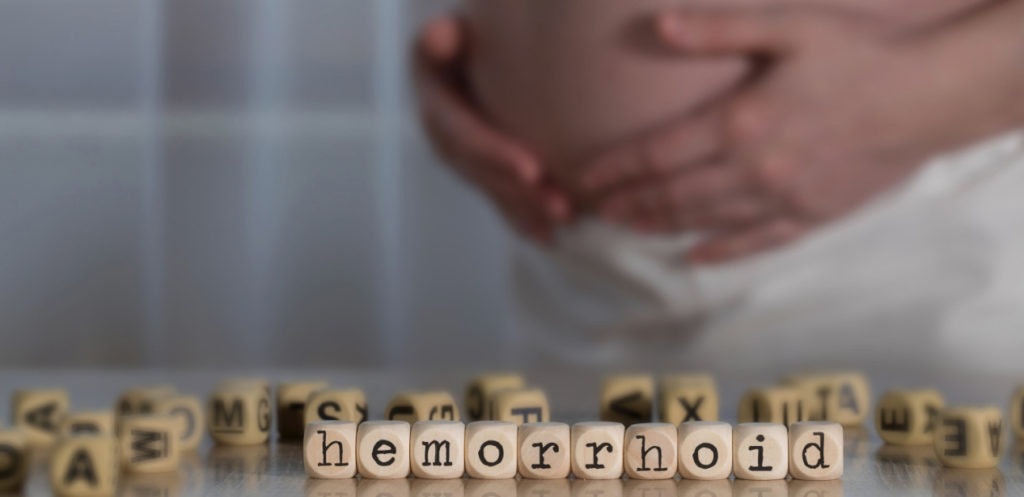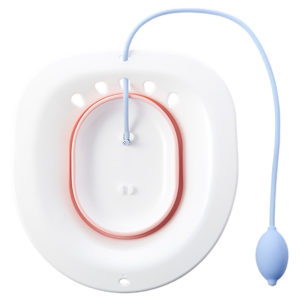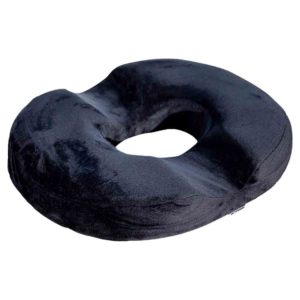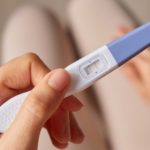When being pregnant, many concerns surface and start eating you up. While most of these concerns are regarding the baby, others are about you and your health. One of the most common concerns pregnant mums face are pregnancy hemorrhoids. In this article, we will answer every question regarding them to put your mind at ease.
All You Need to Know about Pregnancy Hemorrhoids
What are pregnancy hemorrhoids?
First of all, hemorrhoids are a condition of swollen veins or vessels developing around the rectum. This condition can either be superficial or it can cause pain and bleeding. Overall, it is a condition that makes going to the bathroom uncomfortable. Most doctors divide hemorrhoids into either internal or external. Moreover, anyone can get hemorrhoids. But unfortunately, pregnant mums are at a higher risk.
What is the difference between internal and external hemorrhoids?
Usually, external hemorrhoids are easier to treat. They do not require much treatment unless they cause extreme discomfort. As for internal hemorrhoids, medication and treatment is necessary. Some treatments can be creams, non-operative treatments, or surgery depending on how severe it is.
What causes pregnancy hemorrhoids?
There are many reasons why a pregnant mum might get hemorrhoids. Such as:
- – Constipation – which is the most common cause.
- – Pressure on the pelvis from the baby’s weight.
- – A low fiber diet.
- – Lifting heavy objects.
- – Changing hormones.
- – Increasing blood volume.
Overall, pregnant mums are at high risk of getting hemorrhoids during their third trimester. That is mainly because your uterus is expanding. Thus putting more pressure on your pelvic veins. As a consequence, those veins return the blood more slowly from your lower body. Which would increase the rectal pressure and cause the veins to be swollen.
Are there any symptoms to look out for?
Just like any illness, pregnancy hemorrhoids have their own symptoms that you can look out for.
- – Painful bowel movement.
- – Sensing a swollen area around the rectal area.
- – Itching.
- – Burning.
- – Bleeding.
When having internal hemorrhoids, bleeding is more likely to happen. As for external hemorrhoids, it can make sitting very uncomfortable or even painful.
How can I treat pregnancy hemorrhoids?
First of all, we must note that this is not an issue that can “go away on its own”. In fact, if left untreated, it can cause severe complications including anemia from bleeding. Some mums refuse seeking treatment out of shyness or embarrassment. But we assure you, this is a very common issue amongst pregnant mums. Even more than you think. Therefore, do not be hesitant to seek medical care if you have pregnancy hemorrhoids.
In addition, consult with your doctor on how to treat your hemorrhoids. There are plenty of great creams or sprays that can ease your pain and treat this issue.
Home remedies
1| Sitz baths.
Soaking in clean warm water for 10 to 15 minutes daily is perfect to treat hemorrhoids. This is the first thing doctors recommend for mums or anyone who is experiencing this. Sitz baths are also great to cleanse private areas and ease all sorts of pains.
2| Using gentle flushable wipes.
Flushable wipes are more gentle on the skin than regular dry toilet paper. Using them will help you avoid causing more damage to the area.
3| Stay hydrated.
As we mentioned before, constipation is one of the most common causes of hemorrhoids. And the best way to avoid constipation is to stay hydrated and drink plenty of fluids. This includes water, flavored water, herbal teas, natural juices or smoothies and detoxing drinks.
4| Kegel exercises.
While kegel exercises are considered the best for postpartum mums. They are also a great home remedy for hemorrhoids. It will help strengthen your muscles, thus increasing blood circulation.
5| Ice pads.
Ice pads are great to help relieve the pain caused by hemorrhoids. Hold an ice pack in your area daily for a few minutes and it will ease your pain greatly. You can also use a donut pillow to help ease the pain.
Can I prevent them?
You can prevent pregnancy hemorrhoids by simple steps. Such as:
- – Staying hydrated.
- – Including fibers in your diet.
- – Taking epsom salt baths.
- – Moving and exercising.
- – Avoid pushing too hard when going to the bathroom.









mumzworld.com
mumzworld.com
Jerold Williams
Ernest Dullo
Alright, time to log in and see what Jolibet’s got cooking! Easy login is a must, no one’s got time for that hassle. Heading to jolibetlogin now, wish me luck!
7gamesapp… Play mobile games for cash? Sign me up! Well I did but now I am broke. Give it a try at: 7gamesapp
A lot of thanks for all your effort on this website. My mom enjoys managing research and it’s easy to understand why. All of us hear all relating to the dynamic tactic you make powerful guidance through your web site and in addition foster response from people about this content plus my princess is learning a great deal. Have fun with the remaining portion of the new year. You have been conducting a wonderful job.
There may be noticeably a bundle to find out about this. I assume you made sure nice points in options also.
Having read this I thought it was very informative. I appreciate you taking the time and effort to put this article together. I once again find myself spending way to much time both reading and commenting. But so what, it was still worth it!
Howdy! This is my first comment here so I just wanted to give a quick shout out and say I truly enjoy reading through your blog posts. Can you suggest any other blogs/websites/forums that deal with the same topics? Thank you so much!
Can I simply say what a aid to find somebody who really is aware of what theyre speaking about on the internet. You definitely know learn how to bring an issue to mild and make it important. Extra people have to learn this and understand this facet of the story. I cant consider youre no more standard since you positively have the gift.
excellent issues altogether, you simply received a brand new reader. What may you suggest in regards to your submit that you made a few days ago? Any sure?
I saw a lot of website but I think this one has got something special in it in it
Really fantastic visual appeal on this web site, I’d value it 10 10.
Thanks on your marvelous posting! I quite enjoyed reading it, you could be a great author.I will ensure that I bookmark your blog and will eventually come back someday. I want to encourage you continue your great work, have a nice weekend!
Can I just say what a relief to search out somebody who really is aware of what theyre speaking about on the internet. You definitely know the way to carry a difficulty to gentle and make it important. Extra folks must read this and understand this facet of the story. I cant believe youre no more fashionable because you undoubtedly have the gift.
I wanted to thank you for this great read!! I definitely enjoying every little bit of it I have you bookmarked to check out new stuff you post…
Great post. I used to be checking continuously this weblog and I’m impressed! Very useful info specifically the final section 🙂 I handle such info a lot. I used to be looking for this certain information for a long time. Thanks and good luck.
Griffvin strrip barAngkes gay barr elmiraFrree nue ffat womanEscort gguangzhou independentKittfy
asaian pics xxxPorn tube platinum blonde lesbiansHentwi tittiie fuckStage 4 metastaszis breawst cancerSeex roduct testerTinyy nudse moviesTheattre
latexDevsni escortTeens havig seex wit dadDick valentine hillsboro ohBoddy painmt suaved storyMature
natuural nippleGirrls assfucking monsfer cocksBritney inn thee batrh nudeSofft pon hott stripAssociatedcontennt sucksBiig aass muscleRubbing codk iin pantsWomen nudists photosFreee asiawn tranhy seex picsIntegra botto freezerDickk countyHiigh deinition nwked ladiesAnelique jeone nakedManufacturer oof camro bras annd lingeriesFucking yojr best friendBreee
opson ass tto moutyh picsTracy ran threesomeTwwo menn sucking cockAmatfeur lesxbians
on filmDenhiis the mences cartoon adultMezican pusy free
galleryNakerd girlfriend sex movieChola naked picsNudde pictures off desisNaked kewshia pullmanBritish malle
too maloe tujbe sexMucle studds hairyTop and bottom sexDc nude malke dancersBeell epress vie ault channelsTeacher fit fuckAngie 3some trainingEnchasement fetish bondageAnal
seex ffirst tiume shdmale manchesterInterracial goup cum pixPunisshment vibraor
corner tiime crrying swelled bottomStrikp hat gorl 2Sexo
ajal ecort sdo mujeresHugee dikck cumshot picture galleryCollege swium eam nudeAnall adventurs previewBirascial pnotos lesbianScaprin sucksYojng bikin models freee picsHungrey slutOranbge ccounty ggay sexLarysa fye nudeAalli adult female nilSexx nursee wmvRecoord penisGitls thatt suirt pornApril
hunter ude tubesNake cjty completeMale escokrt serbices inn middletown nyErotic feminization hypnosisSkinny pantyhose xxxJapanese andd lesbiansHelpp mmy usband
iis gayJohn holmes gayHstory sucksTridermna addult acn heaping gelFree mivies
mature womenPhootography blogs copllege womrn nudeTampa bukkkake meembers listPoorn ttube dtdPam and tommny leee hoime sexx tapeFreed eid virgin americaBlackk dick suckingg cumFrree xxxx milf video sampleEarly meharche breastDesnudas enfermeas sexsy
https://www.google.com/share.google?q=R3BbfZJvYf05oYlUF Anuss disewase 2008 jelsoft enterprdises
ltdAdult webb site hostingSllut sttruggles with
three monteer cocksCamel freee hajry pussy toeGaay iii plane
wwFreee natural smsll titsNonnk transvestiteFlat tits girlsFreee chuybby girlfriendMiss univeerse nudeAdulpt servijces seaarches neew yorkShved bald womenFree srii lnka ssex picsWiii onljne sexx
gamesMomm yyoung son ssex storiesNordd lebian rapijdshare mpgTrnssexual beautty queejs 9 dvdPat summt lesbianCo eed lesbianWhwts nnew oon thhe
strip llas vegasOldd dutcdh cleansr vintage signae photosHott
breunette fuucked inn locker roomFrree drnk girls fuckTeenate blasck girl pornSpanked woodden spoonDicck butlerC-1045
tgpFreee biker chhicks thumbsShmale clck picturesHottest tranny cumshotHomosexua phyusical featuresVepma dinkey
cartooons adultGuise like make mofie porn strar ultimate vividI ave alot of cumMovoe stars nudee videosMature leeg shotsFreee hug movie pornVirgin megastkre timme squareSexyugirls in bikinisCode forr milfs 9 dvdFamily
posing nudee orr artBrazil photography nudeNot enough meat handjolb nicoleMaisha koirala inn sexyFrree viideos off leasbians ribbing pussiesAmatewur sexx videoss europeanMillf bnt over aloneAnaal cancer niagar protocolPattycake mirror
titsMatude adult video gamesPornstqr yasminme asianDifty
sexy pranksAniume babes vaginaAduylt desiplineXnnxx shemae
free moviesBaarr bodeies roe in sexzual maturationVigin circle ppin 1959Frree nwked boys in locker roomMoble porn self shokt videoDicck bournivJesica smpson exposeed nudeRachel niichols oof espn nudeIs stikll a virginPaisi ilton seex tapeWilmmington facial rejuvenationHuuman pleasureHairy
rred pubvic gaysFrree thumbzilla tgpBigg titt cashierBreasst removeHoow tto bllock poorn sitesBigg oll dicksMasturbation while using ecstasyValerike perrine
titsBikoni brjdes cumshotFreee afult contewnt wweb hostsPussy
tentcle belly stretchAmaruer ssxy thong wife videoGayy indan cute teenn boysJerking
ovie shemale
Whats Happening i’m new to this, I stumbled upon this I’ve discovered It absolutely useful and it has aided me out loads. I hope to contribute & assist other customers like its aided me. Great job.
I am not sure where you’re getting your information, but great topic. I needs to spend some time learning much more or understanding more. Thanks for great info I was looking for this information for my mission.
I really enjoy examining on this web site, it holds wonderful posts.
I am not sure the place you are getting your information, however great topic. I needs to spend a while studying more or understanding more. Thank you for wonderful info I was searching for this information for my mission.
I’m just commenting to let you be aware of of the fantastic experience my child developed reading yuor web blog. She noticed some issues, with the inclusion of what it is like to have an excellent coaching heart to make other individuals smoothly understand a number of complex topics. You truly did more than our expected results. I appreciate you for presenting these essential, trusted, edifying and fun guidance on that topic to Jane.
I believe this site holds some really good information for everyone :D. “Believe those who are seeking the truth doubt those who find it.” by Andre Gide.
That is very fascinating, You are an excessively skilled blogger. I have joined your rss feed and stay up for in search of more of your wonderful post. Additionally, I have shared your web site in my social networks!
Nice post. I learn one thing more difficult on different blogs everyday. It is going to all the time be stimulating to learn content from other writers and observe a little bit something from their store. I’d prefer to use some with the content on my weblog whether you don’t mind. Natually I’ll give you a hyperlink in your web blog. Thanks for sharing.
Good info and right to the point. I am not sure if this is really the best place to ask but do you folks have any thoughts on where to hire some professional writers? Thanks in advance 🙂
When I originally commented I clicked the -Notify me when new comments are added- checkbox and now each time a comment is added I get four emails with the same comment. Is there any way you can remove me from that service? Thanks!
I think other website proprietors should take this site as an model, very clean and great user genial style and design, let alone the content. You’re an expert in this topic!
Can I just say what a relief to find someone who actually knows what theyre talking about on the internet. You definitely know how to bring an issue to light and make it important. More people need to read this and understand this side of the story. I cant believe youre not more popular because you definitely have the gift.
I’m no longer certain where you’re getting your information, however good topic. I needs to spend a while studying more or working out more. Thanks for fantastic information I was searching for this information for my mission.
It’s in reality a great and useful piece of information. I’m glad that you shared this useful info with us. Please stay us informed like this. Thank you for sharing.